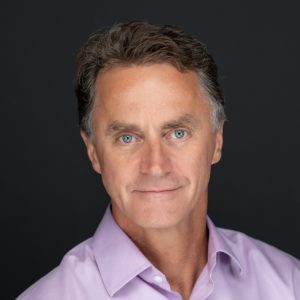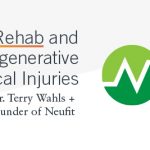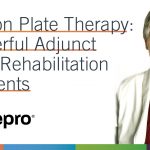Walkabout Health Products, a Wahls Protocol Seminar Sponsor, and I share a deep appreciation for finding health and vitality through traditional means and methods.
In this video, Dr. Will Schlinsog from Walkabout Health Products, and I talk about the importance of Vitamin K2 MK-4, from food, to run the chemistry of life in our bodies. We also touch on how farming has changed the nutrient-density of our food supply.
We evolved eating whole foods.
Whole food nutrition, especially fats and proteins, have helped our bodies and brains grow and evolve. In the last 100 years our food supply has changed drastically. Processed foods, man-made fats, the abuse of our lands polluted with pesticides, herbicides and artificial fertilizers have created infertile soils directly correlated with the decline in our health.
Cattle in feedlots- poultry, dairy cows and pork production in buildings, this removal of animals from pastures inadvertently removed a key, essential nutrient from our diets, vitamin K2 MK-4. Most people are deficient in this vital nutrient and it is having a devastating impact on our health.
Poor nutrition affects not only our health but has a compounding effect on multiple generations.
Vitamin K2 MK-4 is responsible for hundreds of life-sustaining and life-giving processes at the genetic and metabolic level:
- Activates Vitamin K Dependent Proteins (VKDP)
- Activates antioxidant and detoxification pathways
- Vitamin K2 MK-4 fights systemic inflammation in our guts and our brains
- Promotes mitochondrial ATP production
- Reduces mitochondrial dysfunction
- Necessary for myelin production
- MK-4 is neuro-protective
- Immune system modulator
- Reduces oxidative stress
It is no surprise the population is starved for nutrients because the quality of our food has declined—it should be no surprise that our health has declined too.
We need to focus on finding our nutrients from the most bioavailable sources. Dr. Schlinsog discusses the difference between emu oil sourced from Australia vs. the farmed emu oil here in the US.
Read the transcript here:
Dr. Terry Wahls:
Okay, Doctor Will, hey, it’s so great to see you again and chat. So thank you for joining me and I’m so glad that Walkabout is going to be back to the seminar. Today we’re going to be talking to my tribe about vitamin K2 and emu oil.
Okay, so why don’t we, again, for everyone who’s listening, just comment on what is so special about vitamin K2.
Dr. Will:
Vitamin K2 is really significant because:
- Activates the vitamin K dependent proteins involved in myelin production and immune system modulation
- It’s neuroprotective
- Researched to be proven to repair and restore the gut
- When the vitamin K dependent proteins are activated, it’s beneficial primarily for the nervous system
- Helps promote homeostasis in the body overall
- Researched to reduce mitochondrial dysfunction
- Increases the mitochondria ATP production
- Increases glutathione production
- Reduces oxidative stress
- Activates a couple of detoxification pathways—the nuclear factor antioxidant pathway and oxidative phosphorylation
Dr. Terry Wahls:
So to all the tribe, I just heard that vitamin K2 is a critical nutrient for optimal cellular function. When we get into the brain, the vitamin K2 MK-4 is very, very prevalent in the brain and we have a lot more evidence that this is involved in brain oligodendrocyte precursor cells. These are the cells that are critical for the repair and maintenance of the synapses and of the myelin, which makes that a fatty insulation on the wiring between brain cells. And I know there are billions that are being spent trying to develop drugs that will stimulate oligodendrocyte precursor cells. And some of these are trying to get drug analogs for a vitamin K2, or we could improve our intake of K2.
Now, part of this problem is that there’s been a big change in the way we grow our animals. The way dairy is grown, the way we have our lambs, our sheep, our beef and chicken. Does any of this current meat have much vitamin K in it, Dr. Will?
Dr. Will:
Well, what I did at my last two talks, one at Take Back Your Health and one at Weston A. Price. I said to them, if you’re shopping at the grocery store, there’s a very good chance that you’re getting no, or very little vitamin K2 MK-4, in the foods that you are purchasing, and the sad part of that is that I wanted to shock them a little bit, but I also wanted them to go out and support local organic farmers and farming and getting back to soil with lots of bioactivity in it, which creates a more nutrient-dense product, which also gives us more nutrients. And then we know that these people that are also doing CSAs and growing copious amounts of greens and vegetables, they are also involved in poultry and they’re also involved in sheep and they’re also involved in pork and they’re also involved in beef.
And really we’ve got to kind of roll it back a little bit about a hundred years and look at what our animals ate in Iowa and in Wisconsin and in the Midwest.
Dr. Terry Wahls:
Absolutely.
Dr. Will:
They ate grass, that’s chlorophyll, which they have a special process where they convert that with their four stomachs into vitamin K2 MK-4 which is in their milk, which is in their meat. It’s in everything that you make from those byproducts, from the cream and that type of thing, and it sounds too simple to be true. It sounds too easy. I’m surrounded by Amish. My farm is run by Amish. Liz and I, all we eat is some of the stuff that they produce. I’m also involved in organic farming. I did it because I was recommending all my patients to go out and get this stuff. I now sell it to them in my office.
Dr. Terry Wahls:
Yeah.
Dr. Will:
So, I’ve cut that corner. Another thing that I said at my talk is roughly 40% of the people in the city of Marshfield are going to get a cancer diagnosis. You’ve lived in Marshfield. There are four places to shop at. There are four places to shop in Marshfield: Aldi’s, Walmart, Festival, and Pick and Save or Kroger’s, it’s called. Now, what do those four out of 10 people all share in common that live in the city of Marshfield? We all shop at those four places for our nutrient-dense food, if you want. And I believe that it is not nutrient-dense food. I believe that it does not have in it what food had in it a hundred years ago and I believe that if we can go back, and you know organic is growing, but is it growing fast enough to get us from 10% nutrient density to 90% nutrient density or vitamin K2 is deficient in 90 to 97% of the population. Is it growing fast enough to fill that gap? Not unless I drive people to the right places to get it, it’s not.
Dr. Terry Wahls::
It’s so, so important that we look at the quality of our food. We look at the quality of our soils. My parents, who are farmers in Iowa, we did crop rotation and there’s a very different kind of farming that happened 50 years ago and a hundred years ago, which led to a different quality of nutrition, the quality of minerals, a quality of vitamins in that food. And of course, if we are starved for nutrients because the quality of our food is so much less, then it’s no surprise that our health declines.
Another thing that I think is really pretty interesting, my kids have commented, multiple times, how different the food tastes when we’re getting food straight out of our garden and you go out and you pick your vegetables, you’re bringing them in and you immediately eat them. It’s a very different food, and Zeb’s talked about how different the meat tastes when we’re getting it from our local farmer versus getting from the local grocery store.
Dr. Will:
Yes.
Dr. Terry Wahls:
So yes, it’s a very different product. There are very different health outcomes for those who are consuming that.
Dr. Will:
My belief is that when I started practicing in 1986 in Southern California, I was doing whole food nutrition day one and I’ve been doing it ever since. The primary company resides in the state of Wisconsin, that may have been one of the reasons I went in that direction, but I don’t think that based upon where people are getting 99% of their nutrition or their food, whatever they eat. I think we’re in an uphill battle that if four to ten people get a cancer diagnosis, we are, we are losing that battle miserably and you know that cancer and MS and Alzheimer’s and Dementia and all those things, we all need the same stuff to not get those things. This is one of the very big missing ingredients, in my opinion, and I haven’t known about K2 except for maybe the last 10 years maybe. You know, I really understood…
Dr. Terry Wahls:
Let’s talk a little bit about Walkabout. I know you’re very impressed with that as a source for K2, so, what makes Walkabout so special?
Dr. Will:
We are partners with the gentlemen, two farmers that started this over in Australia. They’ve been in business for over 45 years now. They went in a direction many, many years ago where there used to be 2200 farms and they’re roughly are about 20 now. They went in a direction to raising them in their environment that they’re supposed to be in. They kept the feed the same. They started a breeding program and then how they rendered their fat. The other people that raise Emus in Australia have gone in the direction, like, if you drive through [inaudible 00:10:33] Wisconsin and see where they’re raising turkeys, that they’ve gone in that direction, feeding them anything and everything for their food, molecularly distilling the oil when they get it, most of them. And then they have different genetics than what we have, because it took these guys literally, being in business for over 45 years, it’s probably taken them 25 years of it to figure out, by measuring the bioactivity of the oil by actually measuring spike in the analysis of the oil.
It took them a long time to figure this out. You can see this on our website, we’ve tested the two largest producers of the Emu oil in the United States and, not only do they not have the genetics to probably get a lot of K2 if they have it at all in the beginning, but when they molecularly distill their oil, it destroys those fatty acids that we are after, basically.
And the other thing is that their genetics are not the same as our genetics. They brought zoo stock or brought pairs over originally in the 60s and that’s where they’re stuck and that’s something that could very easily change, but understand that these birds are native to Australia where our farms are. Conditions are very harsh and the harsher the conditions, the more dense the oil gets, and it has to be because they sit on the extra 54 days and do not eat or drink, and the further you go out into the Outback, the greater the temperature, the less moisture there is, the less vegetation, the less there is to eat. They’re omnivores. When they got permission from the government to harvest birds and to look at stomach contents, that’s where they started to unravel that certain types of genotypes, again, the further out they went, the stronger the birds obviously had to be to survive.
They’ve spent a lot of time on this. It’s unique. And when I first heard this in 2008 I grew up on a farm, so it clicked for me. A lot of it clicked for me, but I didn’t believe what he was telling me. I didn’t believe some of the studies that they had done. And I said to him, if I’m successful will you be able to produce enough. While now, you know that they’ve had drought in Australia and it’s created some production problems because the less rain there is, the less vegetation there is, the less there is for them to eat, the less eggs they lay. Just like chickens in Wisconsin. So, we’ve had a little bit of a slow supply thing, but that just means that we’re helping a lot of people here in the United States.
Liz and I are actually shipping this all over the world now. So, we kind of are their distributor for them to the world, and the information that Liz and I have worked at very hard over the last 12 years, through research and hiring researchers and researching ourselves, that information is something that we don’t have all over our website because we feel it exposes us a little bit. Plus, we’ve spent a lot of money to gather it. I talk about a lot of it when I speak publicly.
I know what we have and I know how good it is and I’ll give you an example. I’m going to make a bigger effort this year, when I come to your conference, we’re thrilled to be a part of it again. We love that you do food, but I’m going to sit at the tables where there are six or eight women that have MS, which Liz and I did last year. I talked at a table of six women. Two of them had been taking our product for the entire year and they actually told stories about when they would feel tingling and they would increase their doses and the tingling would go away. Two of the six had been on our product for the entire year. They had no symptoms of MS for the entire year and the other four that hadn’t been taking our product went in and out, like most people do, intermittent relapsing MS type symptoms.
Now, I realized by looking at all of our customers from you is that you’re getting people, not with just MS, but all types of… [crosstalk 00:14:13].
Dr. Terry Wahls:
All types of issues.
Dr. Will:
I feel like, when we first started with you, that it was all about MS, but you and I know that it’s any autoimmune disease.
Dr. Terry Wahls:
Absolutely.
Dr. Will:
They all fall under a big umbrella, and they would all benefit from the same protocol that you are presenting. I don’t know if this is a marriage made in heaven, but we’re very happy to be associated with Terry Wahls Protocol and Terry Wahls herself and the conference. We’re having great success helping your people and we get testimonials and feedback and calls weekly, if not daily, from people that you and I have together turned on to changing what they put in their mouth and sometimes how they run their program, their mental program, right? But, this is tremendous help for reducing inflammation, for modulating the immune system and for repairing and restoring the gut. And I think with what you do and what we have, it is rocket fuel for the ship that’s leading to get rid of autoimmune disease, to be quite honest.
Dr. Terry Wahls:
Doctor Will, we’re so glad that you and Liz are coming back and that you’ve been with us now year after year. You’re a great addition to the program. The emo oil is really a lovely addition to your approach to rebuilding your myelin and modulating one’s autoimmune disease activity.
Dr. Will:
Great.
Dr. Terry Wahls:
Once again, thank you Doctor Will.
Dr. Will:
Thank you.
Dr. Terry Wahls:
We’re looking forward to seeing you this July and August. It’s going to be another great seminar.
Dr. Will:
Can you keep it below 90 degrees for me?
Dr. Terry Wahls:
Oh, that one might be tough.
Dr. Will:
There’s air conditioning right?
Dr. Terry Wahls:
There is air conditioning.
Dr. Will:
Okay.
Dr. Terry Wahls:
And the food is great.
Dr. Will:
Yes, it is.
Dr. Terry Wahls:
And the company is even better. By all means come back. You’ll see Doctor Will, you’ll have a chance to check out some of the emo oil and all the other great products that we have there as well. So lots of love to you and your family there, Dr. Will.
 About Dr. Will Schlinsog:
About Dr. Will Schlinsog:
Dr. Will Schlinsog is a board-certified Doctor of Chiropractic in Wisconsin and California. He completed his Pre-Chiropractic education at the University of Wisconsin and went on to attain his Doctor of Chiropractic degree from Logan College of Chiropractic now known as Logan University in Chesterfield, MO. He has been in practice for thirty-two years and currently maintains a private practice in Marshfield, Wisconsin.
He has had additional training in disability evaluations, functional nutrition, applied kinesiology, and functional neurology. He serves as the CFO of Walkabout Health Products and as a consultant to all of Walkabout’s emu oil users. Dr. Will conducts educational and informational podcasts regarding the clinical studies and trials performed primarily in his private practice.
Dr. Will is starting a campaign to get his patients connected to local Organic Farmers. He can be found at walkabouthealthproducts.com. Dr. Will is married to Elizabeth and shares two grown children with her.




